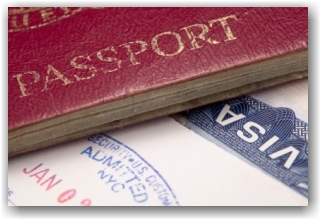As reported in Workforce Magazine
The lack of opportunities in the U.S. plus burgeoning business opportunities on their home turf are causing foreign workers to return to their native lands. Experts warn that the shift will force domestic firms to compete with their one-time workforce as they open their own companies in their native countries.
A 2009 survey by financial firm HSBC revealed that 23 percent of expats in the United States and 44 percent in the United Kingdom were considering going home because of the global economy. Although they originate from several countries, these expats from the U.S. and U.K. cited limited career prospects as the top reason for returning home.
Back in the U.S., the story is particularly startling, with one expert contending that the tide of expats heading home has reached historic proportions.
“For the first time in American history, expats are leaving,” says Vivek Wadhwa, senior research associate with the Labor and Worklife Program at Harvard Law School. “For the last decade or so, there’s been a massive outflux of talent, particularly to India and China. These are typically skilled professionals in the prime of their careers.”
Wadhwa says between 50,000 and 75,000 Indian and Chinese professionals went back home in the last 20 years. Those numbers will soon more than double.
“There will be another 100,000 to India and 100,000 to China in the next five years,” he says. “These people are driving innovations in their home countries that will become competitors to America.”
A shortage of green cards is a major cause for Indians and Chinese, as well as Brazilians and Russians, to return home. “We have a 10-year backlog for green cards,” Wadhwa says. “There are more than one million skilled immigrants—about 35 percent Indian and 25 percent Chinese—who are waiting.
“When we start seeing the next Google coming out of India and China, and people realize these advances are coming from former expats, that’s when the alarm bells will go off,” Wadhwa says.
Many of these expats would like to stay, says Lynn Shotwell, executive director of the American Council on International Personnel, an organization advocating improved business immigration policies.
“The perception is that if we really wanted to change things, we would,” she says. “The question is, are we losing our edge? The ability to attract the best and brightest from around the world was always a big strength for the U.S. Now we’re pulling up the welcome mat.”
Thanks to the recession, companies are evaluating the costs of international assignments and the need to bring expatriates home. . “Before, companies felt they needed to send people [abroad] to open markets and transfer technology and culture,” says Scott Sullivan, executive vice president of Brookfield Global Relocation Services, an international, full-service relocation company. “Now there are lots of capable people in those countries who can perform those jobs. [Companies ask] if they really need to send people overseas or can we hire locally. This is a big dynamic in global business.”



